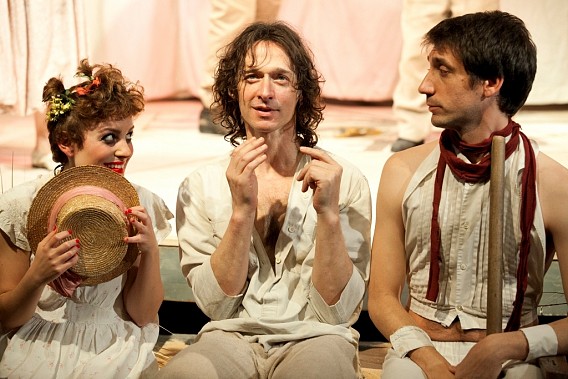 Photo Credit: Gesher Theater
Photo Credit: Gesher Theater
In the multicultural Israeli reality today, the Israeli theater is multilingual, presenting theater in Hebrew as well as in Arabic, Yiddish, English and Russian. Theater in Israel is composed of many different elements – contemporary and classical, indigenous and imported, experimental and traditional – with playwrights, actors, directors, and producers of many backgrounds merging the foreign with the local and thereby gradually creating a distinctive Israeli theater. The theater scene is very active, with many professional repertory companies and other theaters and dozens of regional and amateur companies performing throughout the country to large and devoted audiences.
Hebrew theater did not exist in ancient Hebrew culture, nor did it grow out of the Yiddish theater so popular in Eastern European Jewish communities up to World War II. Hebrew theater began with the founding in 1917 of a Hebrew theater, Habimah (The Stage) in Moscow, under the guidance of Russian director Constantin Stanislavsky and with the acting talent of Hanna Rovina (1892-1980), who later became the ‘First Lady of Hebrew Theater.’ In 1931, the company set up its permanent home in Tel Aviv.